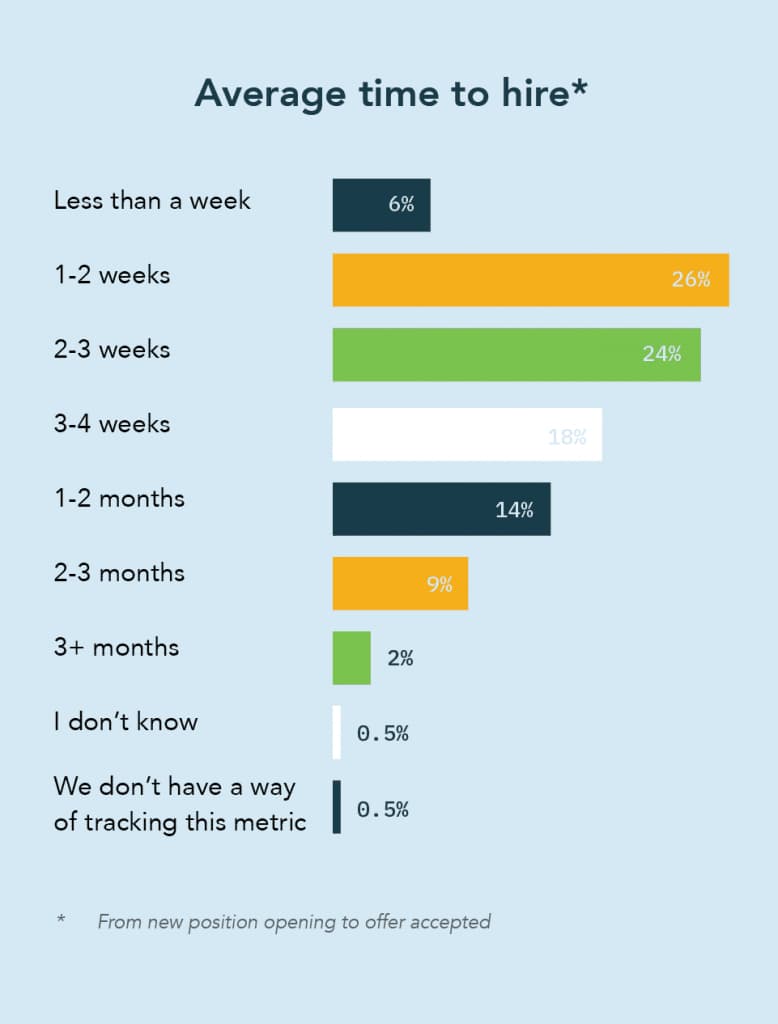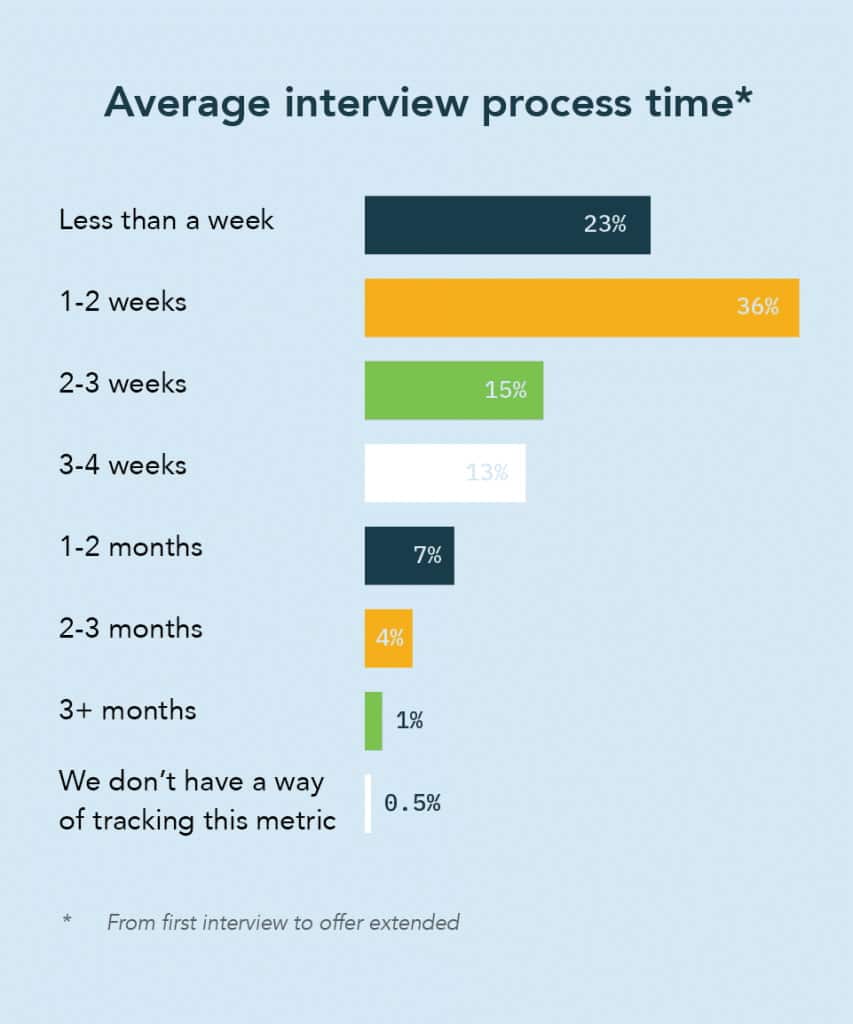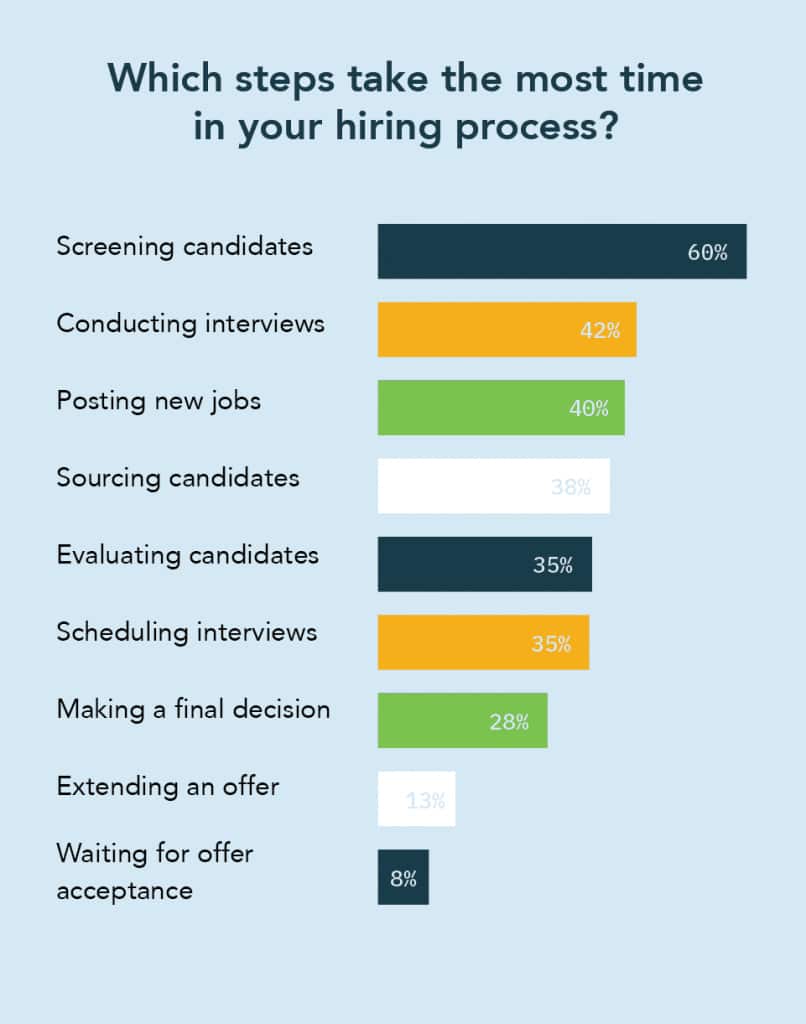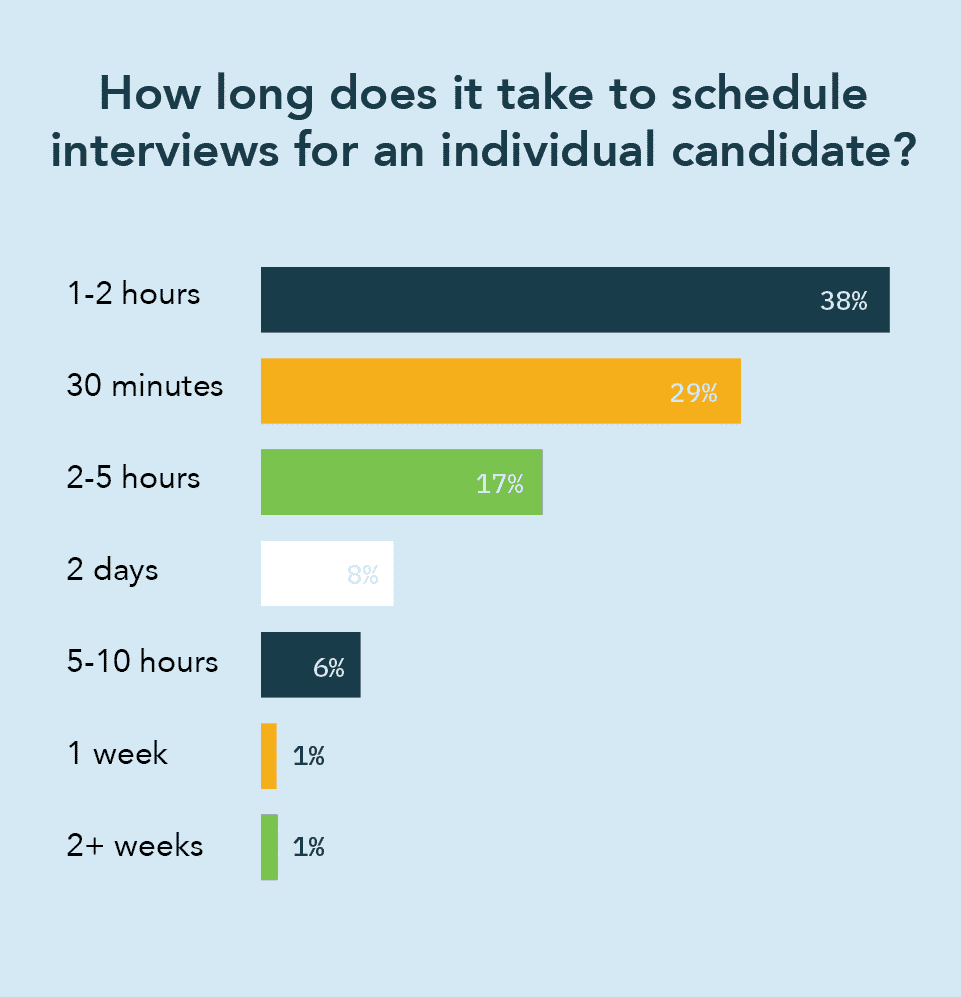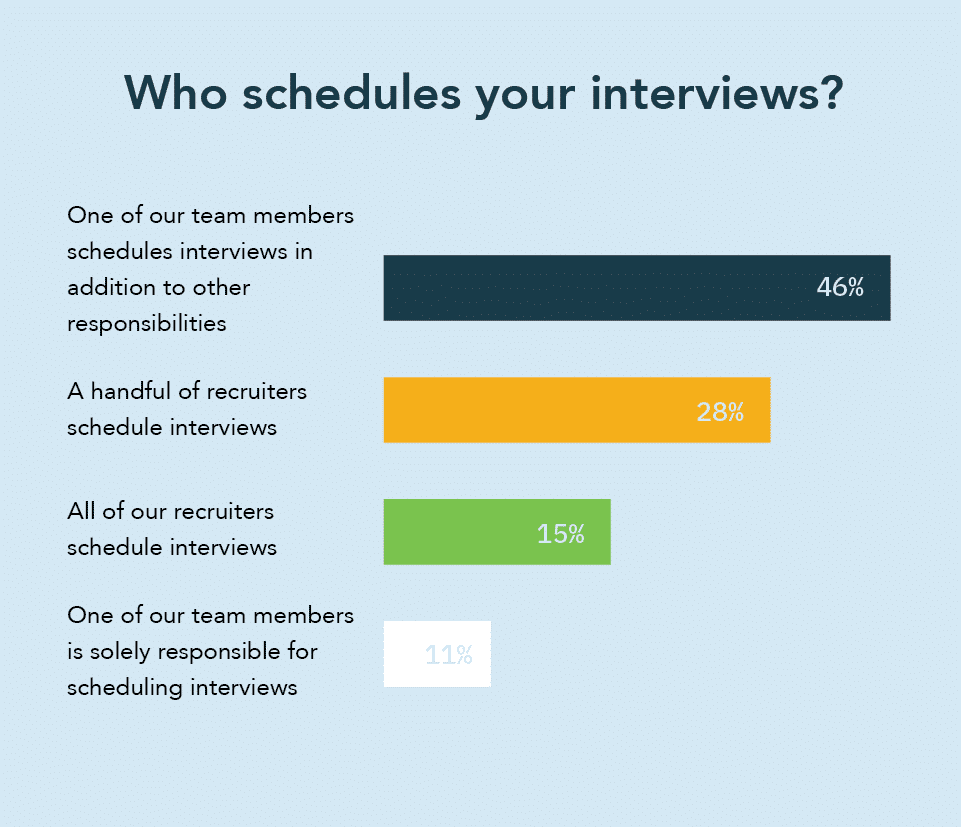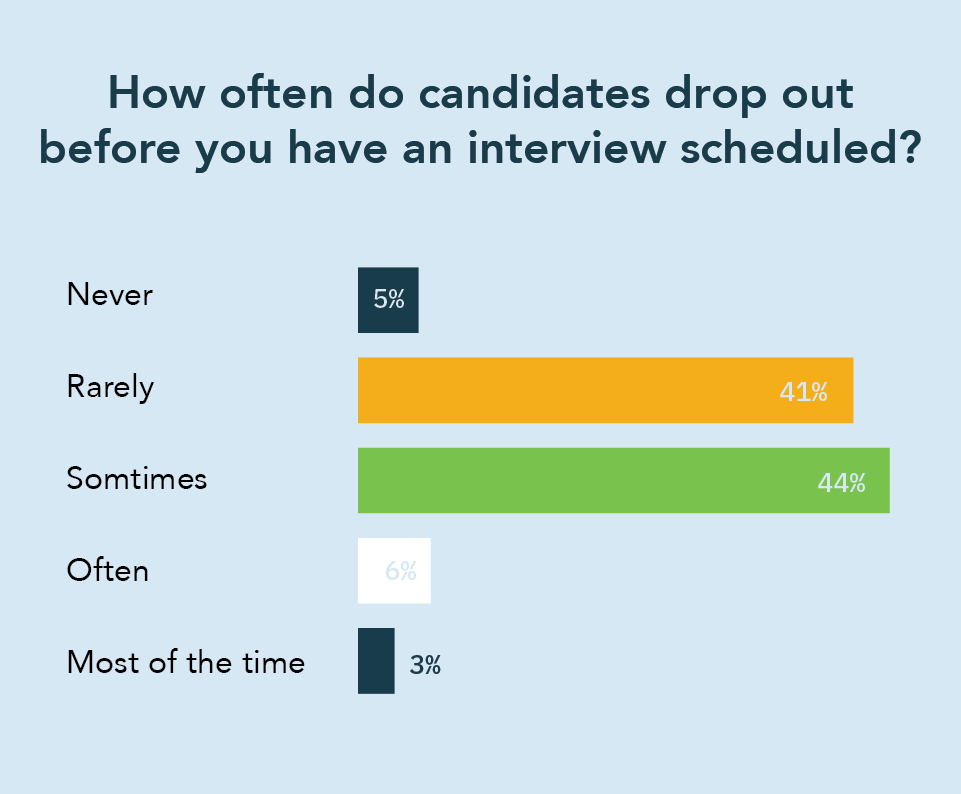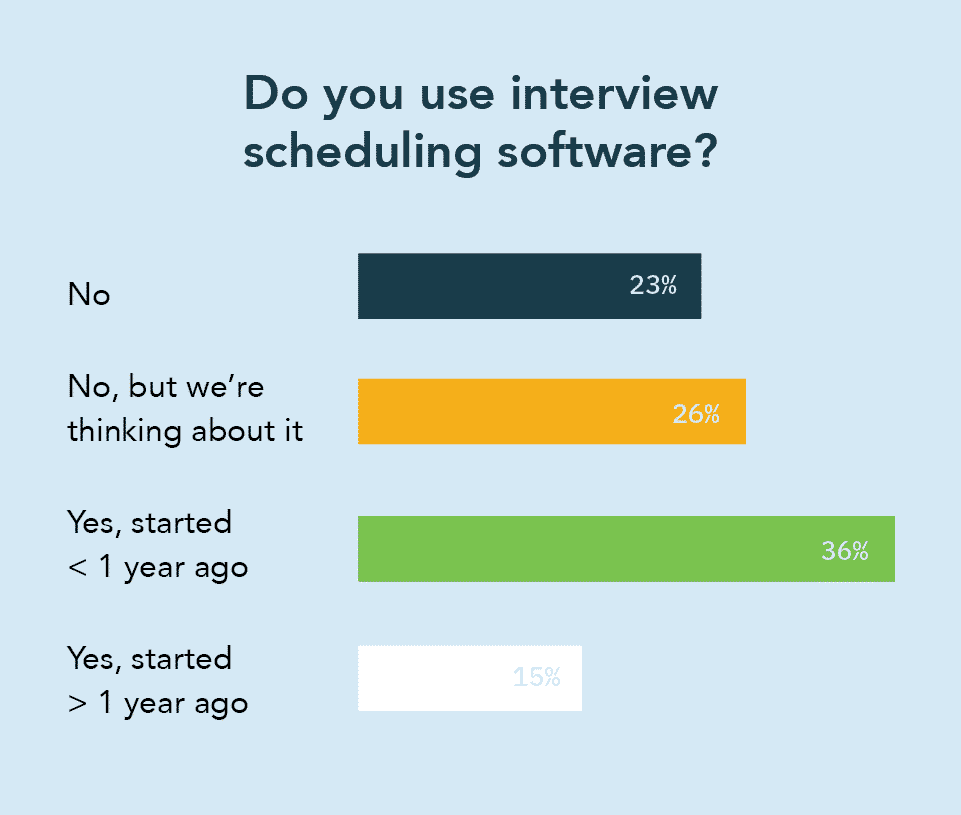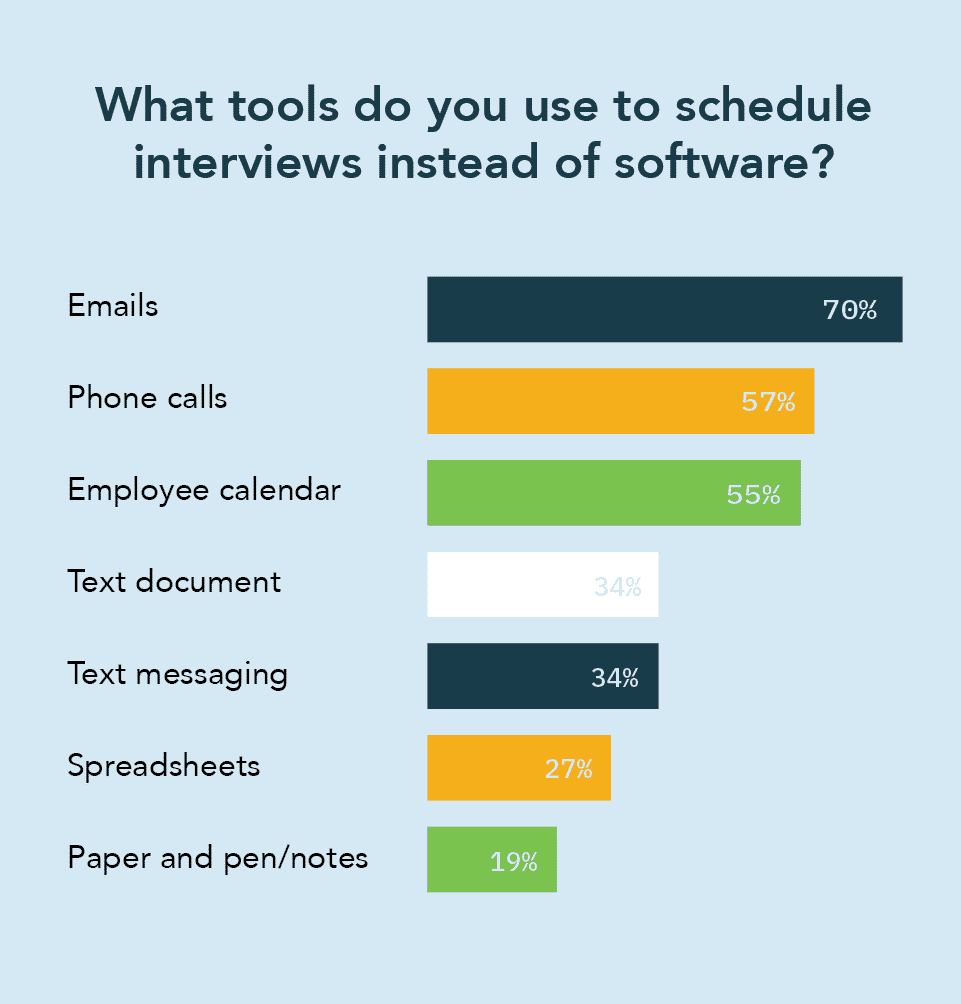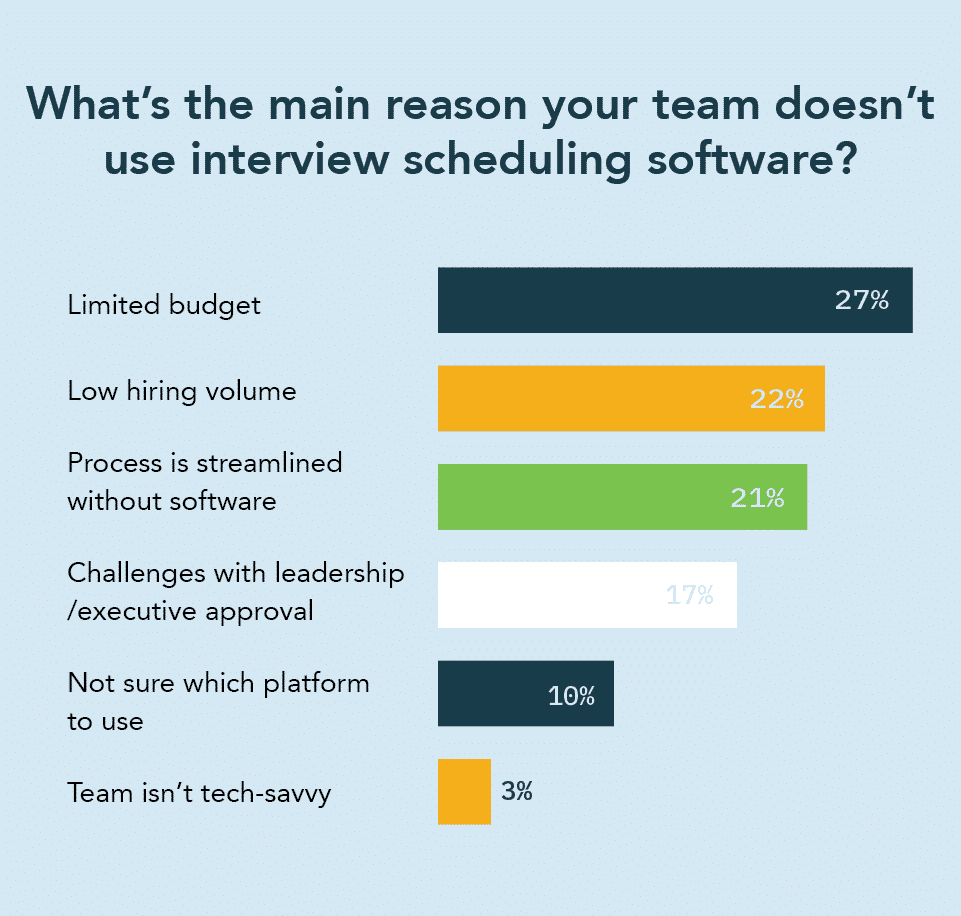2020 Interview Scheduling Statistics and Trends: A Nationwide Recruiter Survey
Recruiters know that one of the slowest, most frustrating steps in the hiring process is interview scheduling. From back-and-forth calendar coordination to starting all over when someone cancels, interview scheduling can become a serious administrative burden for companies with high-volume hiring needs.
We recently surveyed talent acquisition professionals across all industries to gather interview scheduling statistics that unveil exactly how big a challenge this step in the hiring process is for recruiting teams large and small. Yello’s Interview Scheduling Survey highlights which parts of the recruitment process are slowing recruitment down the most, and how recruiters are finding ways to speed things up.
The 2020 Yello Interview Scheduling Survey
By the Numbers
- Average time to-hire across all industries is 3-4 weeks.
- On average, recruiters are spending ⅔ of their overall hiring time on the interview process.
- 67% of respondents say it takes between 30 minutes and 2 hours to schedule a single interview.
- 56% of companies have a dedicated person on their recruiting team who is responsible for scheduling interviews.
- Recruiters’ #1 interview scheduling challenge is finding a time that works for everyone.
- 60% of recruiters say that they regularly lose candidates before they’re able to schedule an interview.
- 51% of recruiters now use interview scheduling software, with an additional 26% thinking about starting.
Time-to-hire isn’t meeting job seeker expectations:
The interview process takes the longest:
From first interview to offer extended, more than 40% of recruiters are spending 2+ weeks on the interview process.
The burden of interview scheduling
When it comes to interviewing, scheduling is an administrative burden felt by almost all employers. 35% of respondents identified scheduling interviews as the most time-consuming aspect of recruitment.
How are recruiters solving the interview scheduling problem?
Interview scheduling software is a growing trend: 51% of recruiters are now using interview scheduling software. Almost 36% of began using it in the last year alone. An additional 26% of recruiting teams are thinking about starting.
The results have been staggering: 59% of recruiters who use interview scheduling software say they’ve saved between 2 and 10 hours per week.
Cut interview scheduling time by 90%
What’s more, research shows that companies who don’t use recruiting technology will suffer the consequences. According to the 2019 Yello Recruiting Study, 54% of Gen Z candidates won’t complete an application if your recruiting methods are outdated, and 26% agree that a lack of technology throughout the hiring process would deter them from accepting a job.
Is there an alternative to interview scheduling software?
For those organizations that don’t use scheduling software, phone calls and emails are the most popular methods to connect with talent:
Is interview scheduling software penny wise?
Businesses that don’t use recruiting technology often cite cost. In fact, a majority of recruiters surveyed claimed they haven’t invested in interview scheduling software due to limited budget.
While budget is a valid concern, interview scheduling software will reduce costs in the long run. Hours of recruiters’ and hiring managers’ time wasted may be a more significant drain on the budget than an investment in technology, and longer time-to-hire may increase cost-per-hire and decrease business productivity and profitability.
The choice is easy: the war on talent demands that businesses work with the best available technology to streamline the interview process. Scheduling software is a cost-effective way to boost candidate experience, attract top talent, reduce time to hire and increase recruitment ROI. If you’re not using scheduling software, you can bet your competition is.
*Methodology:
Yello partnered with SurveyMonkey Audience, SurveyMonkey’s global market research panel, to survey full- and part-time employed adults, ages 18 – 99+ in the United States. The survey was conducted online between September 16 and September 19, 2019. It surveyed 200 professionals in the recruiting, talent acquisition, recruiting operations or staffing space.

